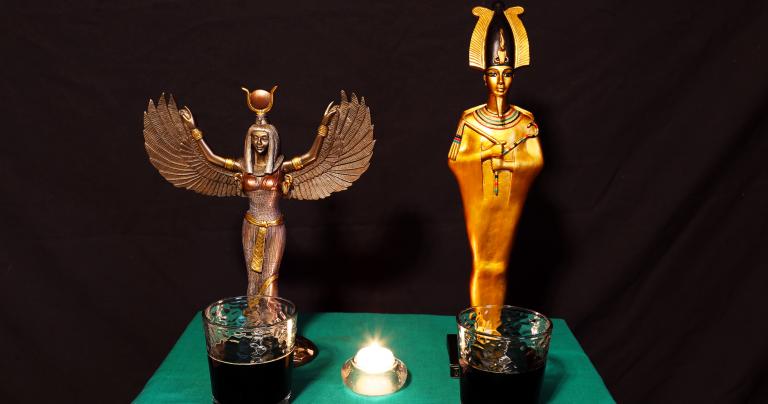Last week I read a long blog post by a Calvinist, arguing that 2020 is proof that “God’s Judgment is Upon Us.” I’ve included a link for reference, but I don’t recommend you read it – it will just raise your blood pressure to unhealthy levels.
Why does this person think his God is judging us? Because we’ve exploited the natural world with no respect for other species or even a thought towards long-term consequences for ourselves? Because we’ve been inhospitable to those in need? Because we’ve oppressed whole groups of people due to their race, gender, orientation, or religion?
No. He thinks his God is judging us because we haven’t maintained in-person church services in the middle of a pandemic, because we haven’t been brutal enough in suppressing dissent, and because women aren’t sufficiently submissive.
I’m not going to bother debunking this screed. Like political conspiracy theories, religious claims of divine judgment are impervious to rational appeals to cause and effect.
Nor am I going to challenge his interpretation of the Christian tradition. No doubt he’s familiar with the Jesus of the Beatitudes and the Jesus who chased corrupt bankers out of the temple with a whip. But the Jesus of compassion and justice is incompatible with his true religion – patriarchy – and with his greatest value – order.
Instead, I want to call attention to the myth behind his rant.
The myth of Good and Evil
Our wider culture often hears the word “myth” and thinks “made up story.” It assumes myths are inferior to facts. But the purpose of a myth isn’t to communicate facts. Its purpose is to communicate identity and values. A myth is a story to live by.
The myth behind this rant says life is a constant battle between Good and Evil. More than that, Evil cannot be accommodated, reasoned with, or tolerated. It must be violently opposed and put down without mercy.
That stark dualism is the core of religious fundamentalist and political ultraconservative mythology.
Patriarchy and the Strongman
From that core is built a foundation of patriarchy: the idea not just that men should rule, but strong men – men who maintain order and who punish disorder and weakness.
This view says that women are always a threat to men’s strength. Their sexuality can distract men from their mission to preserve order. Their nurturing can tempt men to tolerate weakness and even Evil. After all, wasn’t it Eve who made Adam eat the forbidden fruit?
Gay people? Transgender and non-binary people? They don’t fit into a binary world. They break the myth – they’re living proof the myth is wrong.
And people would rather fight you than consider that their myths might be wrong.
The myths of Good and Evil and of patriarchy are unnatural
The myth of Good and Evil is attractive because it’s simple. It presents life as an epic battle between primal forces… and of course, everyone always thinks they’re on the Good side. It says that if we could just get rid of “those people” (or at least, beat them into submission) everything would be OK.
Real life, of course, isn’t so clear-cut. While some acts are so horrible they are properly classified as evil, a look at Nature and at history shows there is no such thing as Evil with a capital E. We all have the capacity to do terrible things… and also to do good things.
Most of the time what we label as “evil” is just persons other than us doing what they do in a way that negatively impacts us. Competitors aren’t evil. Hurricanes and wildfires aren’t evil – they’re simply things that are part of this world that aren’t favorable to humans.
Nature shows that Life isn’t all about us.
Patriarchy values stereotypical male traits over stereotypical female traits, and further demands that all people perfectly embody those stereotypes, whether that’s who they are or not. Even before we get to the issue of basic human rights like autonomy and self-determination, patriarchy denies the value of half of humanity (actually much more than half, when you consider that only the most powerful men end up being patriarchs).
But also, puritanical patriarchy is no fun, even for the patriarchs. Why do you think they’re always so sour? Humans have a natural inclination to “sing, feast, dance, make music and love.”
Savonarola was burned at one of his own stakes. Jerry Falwell and Pat Robertson became objects of mockery.
People will only tolerate unnatural myths for so long.
But people run to them in times of trouble
But when people get scared they look for someone to protect them. And they will give a strongman pretty much whatever he wants in exchange for his promise of protection – his promise to “make us great again.”
Of course, this gives would-be patriarchs and strongmen an incentive to make people afraid.
Whether they actually deliver that protection – or if they stand by while 200,000 people die – is a question that usually doesn’t get answered until long after the fact.
Motivated people get stuff done
Those of us who prefer a more tolerant and inclusive society have Nature and time on our side. Unfortunately, people who think they’re protecting “their way of life” tend to be motivated. People who think they’re on the side of Good fighting Evil tend to be highly motivated.
And motivated people get stuff done. Left unchecked, they’ll run over the rest of us. We need to be motivated too.
How do we motivate ourselves without turning into what we oppose?
Tell better stories
Long-term, the only thing that beats a bad myth is a good myth.
Facts can’t beat myths – people deny inconvenient facts, truth be damned. Rational explanations can’t beat myths – people jump to ad hominem, straw man, or other logical fallacies, or they just tune it out.
If you want to beat a bad myth you have to tell a better story.
Over the course of my lifetime, our society has done a progressively better job of telling stories about women, LGBTQ people, and some religious minorities. We see these stories both in our popular entertainment and in the “real” world. The conversion hasn’t been complete – the blog post that sparked this one is proof of that – but it’s generated real tangible improvements for countless people.
We still like to tell stories about Good and Evil, but we’re not quite as simplistic about it as we used to be.
We still like stories of heroes who fight for truth, justice, and the American way. And we don’t always distinguish between heroes who do the right thing even though it’s hard, and strongmen who don’t give a damn who gets hurt so long as they get what they think is right.
We haven’t done a very good job of telling stories about de-escalating conflict, righting structural wrongs, and compromising in the name of the greater good.
Which tells us that the myth of Good and Evil is still very much alive. We want our heroes to be Good, and to never accommodate Evil. We know life isn’t a football game, but heroes and villains still sell movie tickets and Netflix subscriptions.
We need to find a better myth, a more true myth. We need to tell better stories.
But we have to live long enough to tell them
In his 2014 book Pagan Britain, historian Ronald Hutton looks at why the English converted from their native religions to Christianity. By then all their neighbors were Christian, putting pressure on the English to convert as well. The rise of kings made conversion easier for missionaries – convert the king and it becomes much easier to convert the population. But perhaps most importantly
Unlike Christianity, native English forms of religion were not missionary and militant faiths … the more aggressive, determined and monopolistic religion had the edge over its rivals, simply because it cared more about winning, and demanded absolute victory. [emphasis mine]
In August I said that Trump was the fundamentalists’ Battle of the Bulge and that we can win a decisive victory against fundamentalism in the November election.
That was before the death of Ruth Bader Ginsburg, and before all but two Republican senators gave in to Mitch McConnell’s demand for absolute victory. A third Trump appointee on the Supreme Court is the death knell for reproductive freedom in this country, puts marriage equality in danger, and who knows what else.
The long term work of telling better stories has to be accompanied by the short term work of keeping storytellers alive and well.
Moving forward in uncertain times
I’m going to focus on doing what I do best: telling the stories of the Many Gods, of the sacredness of Nature, and of the need to live in harmony with the Earth and all her creatures.
But I’m not going to surrender to the patriarchs and fundamentalists. I’m going to use all the political tools at my disposal, and I’m going to use other tools as well.
Long term, I like our odds. Short term, we’re going to have to fight to keep what we’ve won, and to continue the drive for freedom for all.
37 days until the election.




















